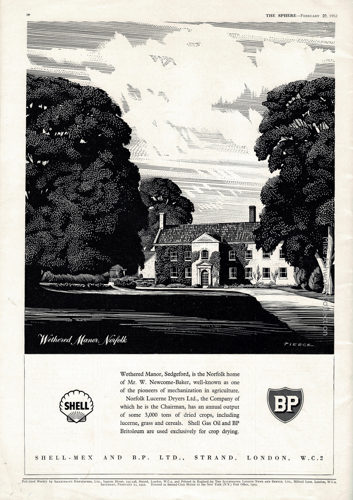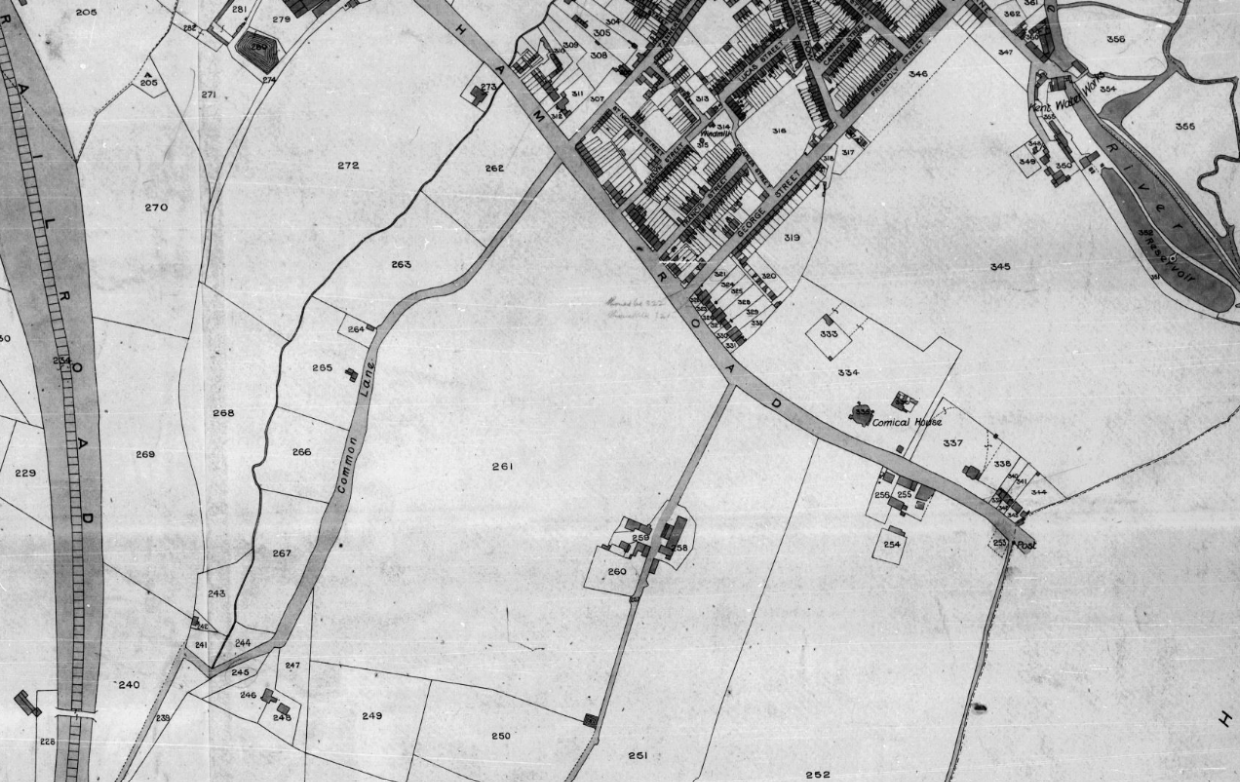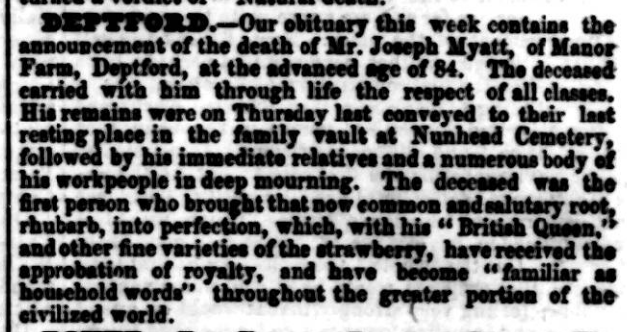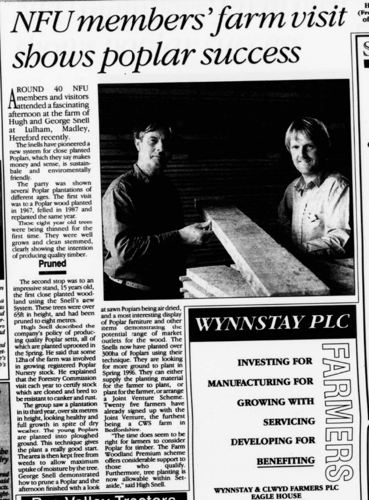From Strawberries to Steam Engines: Pioneering Period Properties That Shaped Britain's Farming Heritage
In the rich tapestry of British farming history, some country homes have witnessed the unfolding of remarkable innovation.
From Strawberries to Steam Engines: Pioneering Period Properties That Shaped Britain's Farming Heritage
by Kelly Morrison, Pursuing The Past
Today we welcome another article from our wonderful partners Pursing The Past.
In the rich tapestry of British farming history, some country homes have witnessed the unfolding of remarkable innovation. The market gardens of rural nineteenth-century Brockley, the stately Wethered Manor in Norfolk, and the humble beginnings of Lower Lulham Farm in Madley each sheltered visionaries who transformed Britain's agricultural landscape through ingenuity and passion.
Behind weathered walls and beneath historic roofs, extraordinary individuals turned traditional practices into ground-breaking innovations that would influence generations of farmers to come.
Many of our farm locations here at Fablefaine were also pioneers in farming practices throughout the centuries, and today offer wonderful period-accurate filming locations as well as exceptionally pleasing backdrops for countryside brand shoots and rural retreat havens.
Stapolian Victorian Farm
Mechanisation Meets Manor Living
Wethered Manor's elegant façade conceals a fascinating chapter of British agricultural history during the mid-twentieth century. William Newcome-Baker envisioned farming's future in the age of mechanisation, transforming his home into a living laboratory for agricultural innovation between the 1930s and 1950s.
A 1952 Country Life feature captured his reputation as 'one of the pioneers of mechanisation in agriculture.' His research into agricultural operations with modern machinery spanned several years, accumulating such an impressive collection that by 1944, an auction of his excess equipment drew 700 buyers from across Norfolk and beyond.
The Newcome-Bakers balanced their agricultural pursuits with community engagement, with Mrs Newcome-Baker sharing their Mediterranean travel experiences at the Sedgeford Women's Institute in 1960. Wethered Manor became both a cherished family home and a catalyst for farming practices that continue to influence British agriculture today.

The Strawberry Pioneer of Rural Brockley
Before late-Victorian elegance graced Manor Avenue, this Brockley land witnessed a remarkable horticultural revolution. In 1842, the plot housed Manor Farm, where Joseph Myatt and his son cultivated 83 acres, including extensive market gardens that changed how Britain enjoyed its summer fruits.

When strawberries remained newcomers to commercial markets, Joseph Myatt emerged as their champion. His breakthrough came in 1831 with the 'Pine-Apple Strawberry' (Myatt's Pine), earning the prestigious Banksian Medal for its exceptional size and sweet flavour. His crowning achievement followed in 1841 with the 'British Queen' strawberry, named in honour of Queen Victoria. These remarkable fruits, some reaching nine and a half inches in circumference, became treasured additions to Victorian gardens across the country.

Myatt tended his revolutionary strawberry varieties until his death in January 1855 at the age of 84. His obituary in the South Eastern Gazette noted that he 'carried with him through life the respect of all classes.' Today, 34 Manor Avenue stands where Myatt once nurtured his berries, a living testament to how this corner of Brockley evolved from horticultural innovation to urban elegance.
The Adaptive Innovators of Lower Lulham
When Hugh Snell acquired Lower Lulham Farm in the 1950s, few could have imagined how this modest smallholding would blossom under three generations of careful stewardship. What began as traditional mixed farming grew into an enterprise that helped shape modern British agriculture.
The 1970s marked a turning point in the farm's story. Hugh's innovative approach secured prestigious contracts with household names – supplying cider apples to Bulmers and blackcurrants to Ribena. His masterful orchard management earned the farm Bulmer's coveted Golden Apple Trophy in 1981, recognising their exemplary stewardship.
Innovation continued to flourish when Hugh's sons, George and Nick, joined the family business. Fresh from agricultural college in 1980, George brought contemporary perspectives to their operations. Together, the brothers orchestrated another remarkable transformation, guiding the farm from poultry production toward pioneering poplar cultivation.
Today, Lower Lulham Farm stands as the UK's largest supplier of kiln-dried hardwood logs, supporting thirty employees alongside the Snell families. This evolution from mixed farming to sustainable woodland management reflects three generations of agricultural entrepreneurship and adaptability – a family who understood that respecting heritage means embracing thoughtful change.

A Living Heritage
These three properties, each with their own unique story, reveal how country houses nurture ideas that can grow into transformative agricultural practices. Newcome-Baker's embrace of mechanisation, Myatt's patient cultivation of revolutionary strawberry varieties, and the Snell family's journey from traditional farming to sustainable woodland management share a common thread of dedication and vision.
As we carefully unfold these narratives through our research, we discover that our historic homes preserve the legacy of innovation that has shaped our nation's farming heritage. Each document reveals another layer of these pioneering stories, showing how passion transformed these properties into something extraordinary – homes where Britain's agricultural future took root and flourished.
Here at Fablefaine we strongly believe in pursuing the longevity of these incredible places through diversification of income that hiring such locations for filming and photography or workshops and retreats can offer. A continuation of their stories for current and future generations.
Visit Pursuing The Past to discover more about their services.
Submit to Storia
Submit your story using the form below. We will review your submission and notify you within two weeks if your submission has been accepted. We may ask for some additional information.
If your story is accepted, we will contact you with a publication date.
Submit your story